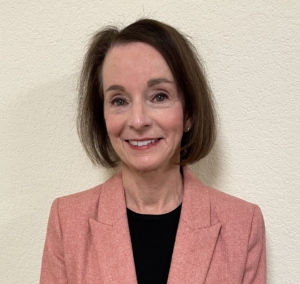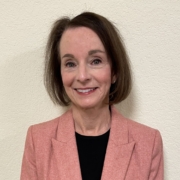Dynamic Levels of Care to Empower Clients
 Last year, Colorado Recovery expanded its services and started admitting directly into its intensive outpatient program (IOP) clients who may be ready to begin their recovery at the IOP level of care or those in the process of stepping down from another program.
Last year, Colorado Recovery expanded its services and started admitting directly into its intensive outpatient program (IOP) clients who may be ready to begin their recovery at the IOP level of care or those in the process of stepping down from another program.
The same applies to our Transitional Living Program which is offered to clients progressing from residential care or intensive outpatient treatment but also admits directly clients who are ready to begin this phase of their recovery. Every client is different and should be evaluated on an individual basis.
“We are quite flexible depending on where the person is,” says Peggy Caspari, MA, LPC, RN, Colorado Recovery’s executive director. “This flexibility is really empowering clients which is our core philosophy. We want to do what’s in their best interest and meet them where they are in their recovery.”
Clients may start at the IOP level of care because they think it’s the best fit for them. “In that case, they’re coming in 3–4 days a week,” explains Caspari. “They’re developing a relationship with a psychiatrist and different therapists. That includes therapists who work at Balsam House, our residential facility.”
Sometimes, the treatment team realizes that an IOP client could benefit from a higher level of care—a little more structure and 24/7 services. Occasionally, it’s the clients themselves who come to that conclusion while in group therapy with peers who are in residential treatment.
“People at various levels of care meet in therapy at Colorado Recovery. They form relationships and start to trust each other. IOP clients become friends with Balsam House clients,” says Caspari. “And sometimes, they start wondering if they can benefit from what’s being offered there. Sometimes the recommendation to switch to a different level of care comes from clinicians and sometimes it comes from a client who might say ‘I would like to move up, I’m interested in your Balsam House services.’ There is a distinct comfort level when you already know people who are living there and therapists who are working there—when you know the psychiatrist there and you know you can go there and still come to the outpatient groups while living at Balsam House.”
The “wrap-around” services at Colorado Recovery are highly flexible. We employ two full-time case managers for inpatient residential and intensive outpatient treatment for clients with bipolar disorder and schizophrenia. The case managers help clients access needed services, housing, and financial benefits. They are generally available to help clients as needs and services present themselves in a dynamic manner.
“We believe in empowerment and let you decide,” says Caspari. “IOP or Balsam House, what do you want? If you want the IOP—great, let’s see how it goes. If you want Balsam House because you think you need more—no problem, we can try that.”
The involvement of clients in the decision-making process is really empowering for them and part of our treatment approach focused on setting a course for a life of engagement, purpose, and connection. Community integration and social engagement continue to be at the heart of the treatment model pioneered by Colorado Recovery founder Richard Warner.
“We try to help clients find true meaning and purpose in their lives and a connection with the community, so we are really looking for that community piece—for example, if you look at our Treehouse model,” explains Caspari. “Our employment support is another important element. And we facilitate social events like museum visits or trips to the farmers’ market in town. All of these activities reinforce their autonomy and that all-important connection to the community to help clients gain meaning and purpose in their lives.”
The treatment program at Colorado Recovery provides the services needed to address schizophrenia, bipolar disorder, and other serious mental illnesses which are specific to each individual. Call us at 720-218-4068 to discuss treatment options for you or the person you would like to help.





